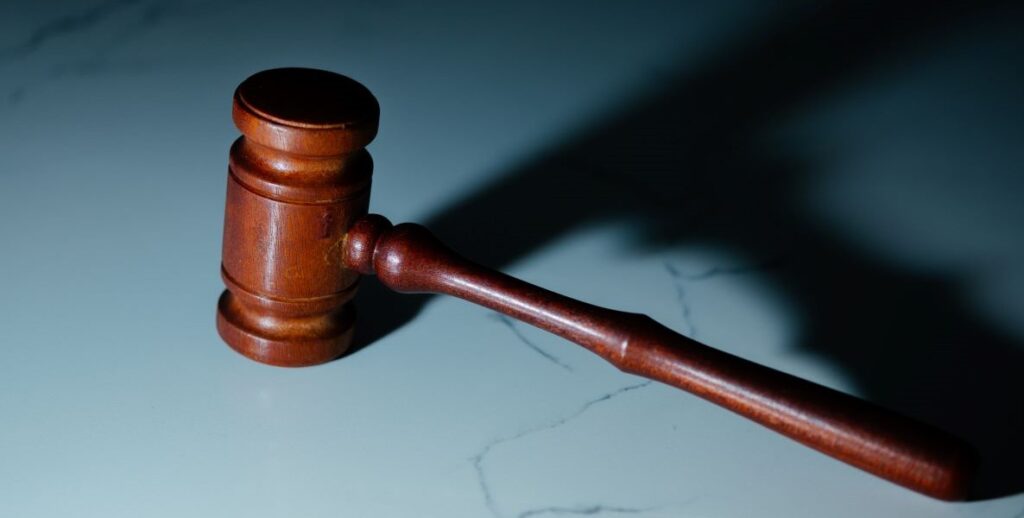I appreciate the efforts Jemille Duncan made in a Citizen story last week to wade into the thicket of judicial elections in Pennsylvania, because the system we have now is not ideal. But there are trade-offs in any change, and I’m not confident that moving to the “Missouri Plan” of direct gubernatorial appointments, as he suggests, is worth the costs.
First off, full disclosure: my political law practice includes representing candidates for judicial office, and since 2013 I have helped candidates for every level of court in Pennsylvania — from the Supreme Court of Pennsylvania down to magisterial district judge — navigate the rules and regulations involved in such campaigns. I’ve had fights over their elections go all the way to the Supreme Court of the United States. If we did away with judicial elections altogether, my odd-numbered years would be a little quieter.
But there are things which work about the status quo which Duncan doesn’t appreciate. For starters, we haven’t elected a judge whom the Philadelphia Bar Association has listed as “Not Recommended” since 2017. Nor has the City Committee (i.e., the local Democratic Party) endorsed one since that year. (P.S. Micah Mahjoubian’s PhillyJudges.com remains a tremendous resource for this terrain.)
Recent judicial elections
In fact, what we’ve seen in the past few cycles is two-fold:
-
- Local Democratic leaders seem to recognize that Bar recommendations matter a lot to voters in making their choices, and
- The Philadelphia Bar Association has worked hard to expedite its processes to make its recommendations available sooner, and publicize them to voters.
Put the two together, and increasingly “Not Recommended” candidates often will end their candidacies because City Committee support isn’t going to materialize, as has largely happened again this year.
On the flip side, the Bar Association has also introduced a new “Highly Recommended” status for the best-qualified judicial candidates. Three of those four candidates won in 2019; the fourth did when running again in 2021, as did two others that year (with two other Highly Recommended candidates defeated). One hopes the Bar’s Campaign for Qualified Judges continues to publicize these talented candidates.
Furthermore, since Act 77 was enacted in 2019, around one-third of Democratic primary voters now are expected to vote by mail. This means that even more voters have the opportunity to take their time to research judicial candidates with their ballots in hand. It also means that the random lottery of ballot position matters less. Indeed, the judicial candidate who had the top ballot position in 2021 did not win. (She’s running again this time. She has second position.)
The bottom line is that we’ve seen concrete, positive change in recent cycles in the quality of judges who have been elected locally.
You can’t take politics out of the process
The Missouri plan which Duncan supports would, to be sure, filter out sub-par candidates so they could never be seated in the first place. The problem is who would be seating those remaining in contention.
Giving the governor the power to make these selections sounds great as long as we have a Democratic governor in Harrisburg who reflects Philadelphia’s values. Gov. Shapiro would undoubtedly appoint a highly qualified, inclusive slate of Philadelphia judges.
But what happens if Pennsylvania elects a Republican governor again? Then we lose any real local accountability for what could be blatantly ideological choices, with 7 to 10 Republican judges placed on the Court of Common Pleas of Philadelphia every two years. And judicial philosophy matters in so many of the cases our local courts decide, whether we’re talking about the Mayor’s ability to remove a controversial statute or the evidence the jury is permitted to hear in a law enforcement-involved shooting case.
(Yes, to be sure, Missouri uses a nonpartisan commission to vet candidates’ credentials, but that doesn’t prevent the Governor from selecting the most ideologically-favorable choices.)
At least when it comes to filling judicial vacancies in Pennsylvania, our closest current analogue, the Governor nominates, but the State Senate has to confirm these judges with a two-thirds vote. In practice, this leads to horse-trading across the Commonwealth between the political parties, with input from county leaders to produce a statewide slate filling many vacancies at once. Everyone gets something, and no one gets everything they want.
The point is: you can’t take politics or ideology out of the process altogether. Too much is at stake. The question is whose politics. Even the merit selection plan proposed by Pennsylvanians for Modern Courts has a governor choosing nominees for appellate courts from an independently-vetted commission but leaves the local courts for local voters to decide.
This might be the best way to go — starting with statewide courts, not local judges. Because when it comes to these races, to paraphrase a slogan from an old billboard, perhaps Philadelphia’s judicial elections aren’t as bad as Philadelphians say they are.
Adam Bonin specializes in political law compliance for candidates, businesses, and other entities, focusing on the areas of campaign finance and election law, lobbying disclosure, and pay-to-play and other ethics laws.
The Citizen welcomes guest commentary from community members who stipulate to the best of their ability that it is fact-based and non-defamatory.

